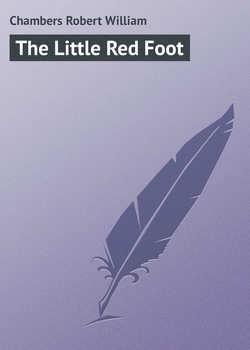Читать книгу The Little Red Foot - Chambers Robert William - Страница 1
CHAPTER I
SIR WILLIAM PASSES
ОглавлениеThe day Sir William died there died the greatest American of his day. Because, on that mid-summer evening, His Excellency was still only a Virginia gentleman not yet famous, and best known because of courage and sagacity displayed in that bloody business of Braddock.
Indeed, all Americans then living, and who since have become famous, were little celebrated, excepting locally, on the day Sir William Johnson died. Few were known outside a single province; scarcely one among them had been heard of abroad. But Sir William was a world figure; a great constructive genius; the greatest land-owner in North America; a wise magistrate, a victorious soldier, a builder of cities amid a wilderness; a redeemer of men.
He was a Baronet of the British Realm; His Majesty's Superintendent of Indian Affairs for all North America. He was the only living white man implicitly trusted by the savages of this continent, because he never broke his word to them. He was, perhaps, the only representative of royal authority in the Western Hemisphere utterly believed in by the dishonest, tyrannical, and stupid pack of Royal Governors, Magistrates and lesser vermin that afflicted the colonies with the British plague.
He was kind and great. All loved him. All mourned him. For he was a very perfect gentleman who practiced truth and honour and mercy; an unassuming and respectable man who loved laughter and gaiety and plain people.
He saw the conflict coming which must drench the land in blood and dry with fire the blackened cinders.
Torn betwixt loyalty to his King whom he had so tirelessly served, and loyalty to his country which he so passionately loved, it has been said that, rather than choose between King and Colony, he died by his own hand.
But those who knew him best know otherwise. Sir William died of a broken heart, in his great Hall at Johnstown, all alone.
His son, Sir John, killed a fine horse riding from Fort Johnson to the Hall. And arrived too late and all of a lather in the starlight.
And I have never ceased marvelling how such a man could have been the son of the great Sir William.
At the Hall the numerous household was all in a turmoil; and, besides Sir William's immediate family, there were a thousand guests – a thousand Iroquois Indians encamped around the Hall, with whom Sir William had been holding fire-council.
For he had determined to restrain his Mohawks, and to maintain tranquillity among all the fierce warriors of the Six Nations, and so pledge the entire Iroquois Confederacy to an absolute neutrality in the imminence of this war betwixt King and Colony, which now seemed to be coming so rapidly upon us that already its furnace breath was heating restless savages to a fever.
All that hot June day, though physically ill and mentally unhappy, – and under a vertical sun and with head uncovered, – Sir William had spoken to the Iroquois with belts.
The day's labour of that accursed council-fire ended at sunset; sachem and chief departed – tall spectres in the flaming west; there was a clash of steel at the guard-house as the guard presented arms; Mr. Duncan saluted the Confederacy with lifted claymore.
Then an old man, bareheaded, alone, turned away from the covered council-fire; and an officer, seeing how feebly he moved, flung an arm about his shoulders.
So Sir William came slowly to his great Hall, and slowly entered. And laid him down in his library on a sofa.
And slowly died there while the sun was going down.
Then the first star came out where, in the ashes of the June sunset, a pale rose tint still lingered.
But Sir William lay dead in his great Hall, all alone.
